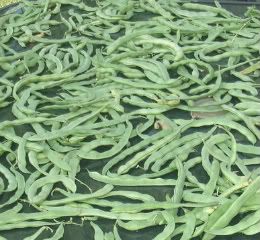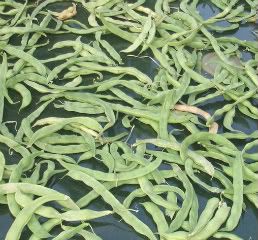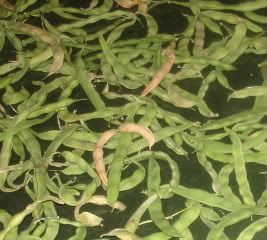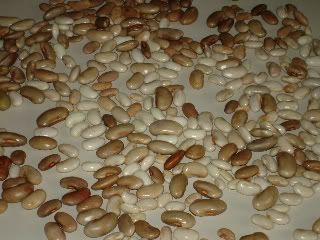Day 1:

Day 2:

Day 4:

Day more than 10:

If I ever decide to dry beans again, I will take the time to string them and hang them up somewhere cool and dry. A combination of rainy days and my forgetting to spread out the beans equaled moldy beans. Last night I finally finished shelling all the beans, whether they were ready or not.
Once the beans are dry, I'll put them in the freezer and later this Fall/Winter we'll use them for ham and bean soup!
I would like to hear how the bean soups taste later in the winter. I really had never thought of drying my own beans, but it's the one crop my black thumb can produce without fail, so I will have to try this next year.
ReplyDeleteDo you have to freeze them if they are already dried?
Double-commenting to say that my first comment didn't come out right! I meant that I hope you post about using the beans throughout the winter because I want to read about the results of all your hard work. Didn't mean to imply that they wouldn't taste good!
ReplyDeleteRebecca - I've read varying information on the storage of dried beans. Some sites say to dry and freeze for long-term storage and others say to store in an air-tight container in a cool, dry place. I think freezing will work best for me, but it's not required.
ReplyDelete